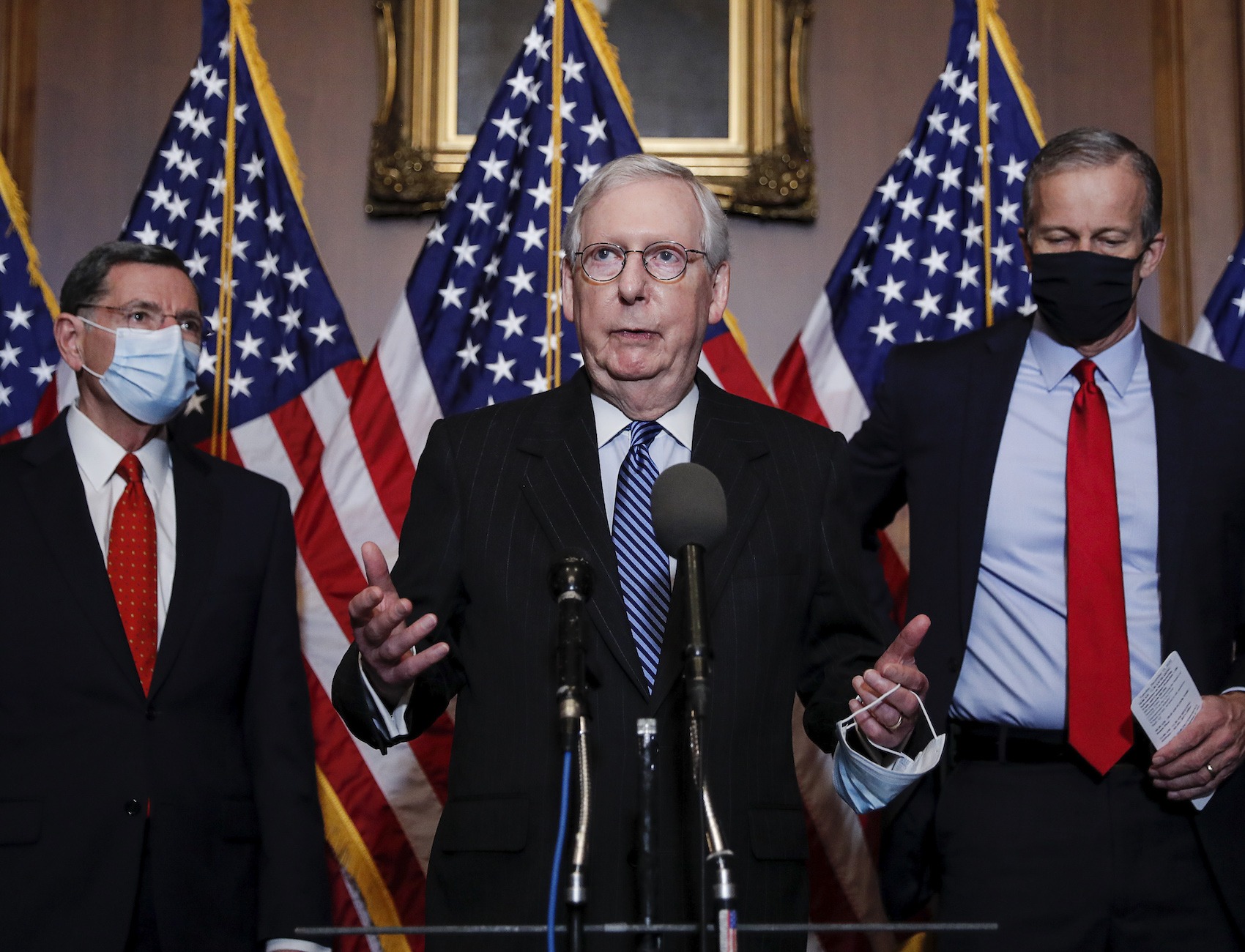Commentary
State and Local Leaders Want More COVID-19 Relief
It’s time for congressional Republicans to listen.

Last week, President Biden held a town hall in Wisconsin to advocate for the American Rescue Plan Act. This legislation, which has been passed in the U.S. House of Representatives, would give $350 billion to state and local governments to keep essential workers on the job, get Americans vaccinated against COVID-19, and support local economies.
This vision is incredibly popular with Americans; in a national poll last month, 72 percent of respondents voiced support for the American Rescue Plan.
It’s also supported by state and local officials of both parties who are desperate to prevent more economic hardships and unemployment. As Wisconsin state treasurer, I routinely work with county treasurers of both parties. Whether preserving EMS services in Waushara, covering Health Department costs in Kenosha, or maintaining basic core functions in Adams, county leaders throughout the state have spent the last year fighting the pandemic and working to absorb increasing expenses while maintaining essential services.
This bipartisan call from state and local officials for federal help isn’t just limited to my home state. Republican mayors in Miami, Oklahoma City, and Fort Worth, Texas, are calling for help, as are Republican governors like Larry Hogan in Maryland and Jim Justice in West Virginia.
The reason is simple. Budget shortfalls have already forced cuts of more than 1.4 million critical public service workers. The prospect of fewer firefighters, fewer teachers, and fewer police officers in our cities, counties, and towns is real. That’s why I signed a letter with 17 other state treasurers urging our congressional delegations to support President Biden’s plan. Like I have in Wisconsin, many of these treasurers have been working since July in their states to urge our federal representatives to provide more help.
That Republicans in Washington refuse to acknowledge this reality is as perplexing as it is counterproductive. Instead of uniting to defeat the coronavirus and reboot our economy, congressional Republicans are launching bad faith attacks on the American Rescue Plan.
The truth is that state and local governments have made agonizing cuts and dipped into rainy day funds to keep basic essential services running—but it’s not enough. For instance, Chippewa Falls, not far from where I grew up, is preparing for potential school district layoffs as it scrambles to stabilize education financing. Despite these deep emergency actions, state governments still face budget shortfalls that could exceed $500 billion over the next two years.
A year ago, the CARES Act was instrumental in preventing an even greater disaster. Despite misleading claims, 90 percent of that funding for state and local governments has now been spent or allocated for future use. Now, with hope on the horizon, more help is needed to vaccinate our people and help local economies recover from this emergency. The American Rescue Plan would provide more help and more flexibility to ensure relief funds can be deployed quickly and effectively.
The math is simple: The pandemic has dramatically increased costs while depleting the revenue base. Unlike at the federal level, state and local governments can’t just print money. A significant federal investment is the only way to shore up our local economies in the face of a once-in-a-generation pandemic and economic crisis.
We have sadly seen this movie before. When partisan fights in Congress kept essential funding from state and local governments in 2009, state economies took years longer to recover from the recession than they should have. We can’t make that same mistake again.
Failure to invest in local communities will hurt public health, hinder vaccination efforts, and hurt state economies for years to come. The country has already united behind the American Rescue Plan. It’s time for Republicans in the Senate to put partisanship aside, and give their state and local governments the funding needed to serve the people and recover from this crisis.
